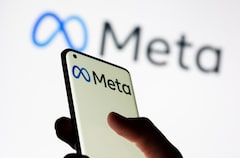In a riveting session before the U.S. Congress on September 9, 2025, whistleblowers from Meta, the parent company of Facebook, Instagram, and the virtual reality (VR) platform Horizon Worlds, delivered alarming testimony accusing the tech giant of placing profits ahead of the safety of young users in its virtual reality ecosystem. The allegations, which have sparked widespread concern among lawmakers, child safety advocates, and the public, center on Meta’s alleged negligence in addressing risks to children and teenagers in its VR platforms, particularly as the company seeks to expand its presence in the rapidly growing metaverse.
The congressional hearing, convened by the Senate Judiciary Committee’s Subcommittee on Privacy, Technology, and the Law, comes at a time when Meta is aggressively promoting its VR and metaverse technologies as the future of digital interaction. With the global VR market projected to reach $57 billion by 2028, according to industry analysts, Meta’s Quest headsets and Horizon Worlds platform are central to its ambition to dominate this emerging space. However, the whistleblowers’ testimony has cast a shadow over these ambitions, raising questions about the company’s commitment to protecting its youngest users from online harms, including exposure to inappropriate content, predatory behavior, and psychological risks.
The Whistleblowers’ Allegations
The whistleblowers, former Meta employees who worked on the company’s VR and metaverse initiatives, provided detailed accounts of internal practices that they claim prioritized rapid growth and monetization over robust safety measures. According to their testimony, Meta was aware of significant risks to children and teenagers using its VR platforms but failed to implement adequate safeguards to address these concerns. The whistleblowers, whose identities were partially protected during the hearing due to concerns about retaliation, painted a troubling picture of a corporate culture that sidelined safety in favor of market dominance.
One whistleblower, a former product manager on the Horizon Worlds team, described how internal discussions about child safety were often overshadowed by pressure to accelerate user growth and engagement. “We knew there were kids as young as 10 or 11 accessing Horizon Worlds, even though the platform was supposed to be restricted to users 13 and older,” the whistleblower said. “Reports of inappropriate interactions, including harassment and exposure to explicit content, were coming in regularly, but the response was often to downplay the issue or shift resources to other priorities.”
Another whistleblower, who worked in Meta’s trust and safety division, alleged that the company’s content moderation systems for VR were woefully understaffed and underfunded compared to its 2D platforms like Facebook and Instagram. “The VR environment is fundamentally different—it’s immersive, real-time, and harder to moderate,” they explained. “But Meta didn’t invest in the tools or personnel needed to keep kids safe. Instead, they focused on rolling out new features to attract more users and advertisers.”
The whistleblowers also pointed to internal documents, some of which were submitted to the committee, that reportedly showed Meta executives were aware of studies highlighting the psychological risks of prolonged VR use for young users, including potential impacts on mental health, such as increased anxiety and disorientation. Despite these findings, the company allegedly continued to market its Quest headsets to younger audiences indirectly, through partnerships with gaming companies and influencers popular among teens.
Congressional Response and Legislative Context
The testimony elicited strong reactions from lawmakers, who expressed frustration with Meta’s apparent disregard for child safety in its rush to capitalize on the metaverse. Senator Amy Klobuchar, a Democrat from Minnesota and a vocal advocate for tech regulation, described the allegations as “deeply disturbing” and called for stricter oversight of VR platforms. “If Meta is knowingly putting kids in harm’s way to boost its bottom line, that’s not just a failure of corporate responsibility—it’s a betrayal of public trust,” she said during the hearing.
Senator Josh Hawley, a Republican from Missouri known for his tough stance on Big Tech, pressed the whistleblowers on whether Meta’s leadership, including CEO Mark Zuckerberg, was directly aware of the safety concerns. The whistleblowers confirmed that senior executives were briefed on the issues but often dismissed calls for stronger protections as “overly cautious” or “bad for business.” Hawley vowed to push for legislation that would hold tech companies accountable for failing to protect minors in virtual environments.
The hearing is part of a broader wave of scrutiny facing Meta and other tech giants over their impact on young users. In recent years, Congress has held multiple hearings on the effects of social media on mental health, cyberbullying, and online exploitation, spurred in part by revelations from whistleblowers like Frances Haugen, who in 2021 exposed internal Meta research showing Instagram’s harmful effects on teenage girls’ body image and self-esteem. The latest testimony adds fuel to the ongoing debate over how to regulate emerging technologies like VR, which present unique challenges due to their immersive and interactive nature.
Lawmakers are considering several legislative proposals to address these concerns, including the Kids Online Safety Act (KOSA), which would require platforms to implement stronger safeguards for minors, and the Children and Teens’ Online Privacy Protection Act (COPPA 2.0), which aims to update existing privacy laws to cover modern digital platforms. However, these bills have faced resistance from tech industry groups, who argue that overly restrictive regulations could stifle innovation and burden smaller companies.
Meta’s Defense and Industry Context
In response to the whistleblowers’ allegations, Meta issued a statement denying that it prioritizes profits over safety. “The safety of our users, especially young people, is a top priority,” the company said. “We have implemented robust measures to protect users on Horizon Worlds and our other platforms, including age restrictions, content moderation tools, and parental controls. We are committed to working with lawmakers and experts to ensure our VR platforms are safe and age-appropriate.”
Meta pointed to features like its “Personal Boundary” tool, which creates a virtual buffer zone around users in Horizon Worlds to prevent unwanted interactions, as evidence of its commitment to safety. The company also highlighted its collaboration with child safety organizations and its investment in AI-driven content moderation systems. However, critics argue that these measures are insufficient, particularly given the unique challenges of moderating real-time, 3D virtual environments where users can interact in ways that are harder to monitor than text-based or 2D platforms.
The controversy comes at a critical juncture for Meta, which has invested heavily in its metaverse vision, reportedly spending over $50 billion since 2020 on VR and augmented reality (AR) development. The company’s Quest headsets have become the market leader in consumer VR, with millions of units sold worldwide. Horizon Worlds, Meta’s flagship VR social platform, allows users to create and explore virtual spaces, attend events, and interact with others using avatars. While the platform has attracted a growing user base, it has also faced criticism for technical glitches, limited content, and, now, safety concerns.
The broader VR industry is also grappling with how to balance innovation with responsibility. Competitors like Sony (PlayStation VR2) and ByteDance (Pico VR) are expanding their own VR offerings, while smaller startups are exploring niche applications in gaming, education, and social interaction. Unlike traditional social media, VR platforms require users to wear headsets that fully immerse them in digital environments, raising new questions about privacy, data collection, and psychological impacts. For example, VR systems often track users’ movements, gestures, and even eye movements, creating detailed behavioral profiles that could be exploited if not properly safeguarded.
The Unique Risks of VR for Young Users
Child safety experts testifying alongside the whistleblowers emphasized the distinct risks that VR poses to young users. Unlike traditional social media, where interactions are mediated through screens, VR creates a sense of physical presence, making experiences feel more real and emotionally intense. This immersion can amplify the impact of negative interactions, such as bullying, grooming, or exposure to inappropriate content.
Dr. Sarah Thompson, a child psychologist and expert witness at the hearing, explained that VR’s immersive nature can make it harder for young users to disengage from harmful situations. “In a virtual environment, a child might feel trapped or overwhelmed in ways that don’t happen on a 2D platform,” she said. “The sensory overload, combined with the anonymity of avatars, can embolden bad actors and make it harder for kids to recognize when they’re in danger.”
Studies on the psychological effects of VR are still in their early stages, but preliminary research suggests that prolonged exposure can lead to issues like eye strain, disorientation, and, in some cases, heightened anxiety or dissociation, particularly in younger users whose brains are still developing. The American Academy of Pediatrics has recommended limiting VR use for children under 13 and closely supervising older teens, but enforcing such guidelines in practice remains challenging, especially when platforms like Horizon Worlds are accessible through widely available consumer devices.
Another concern is the difficulty of moderating content in real-time VR environments. Unlike text-based platforms, where automated systems can scan for keywords or flag explicit images, VR interactions often involve voice, gestures, and user-generated spaces that are harder to monitor. The whistleblowers alleged that Meta’s moderation systems were not equipped to handle the volume or complexity of reports coming from Horizon Worlds, leaving young users vulnerable to harassment and exploitation.
Public and Advocacy Group Reactions
The whistleblowers’ testimony has galvanized child safety advocates, who are calling for immediate action to protect young users in VR. The National Center for Missing and Exploited Children (NCMEC) issued a statement urging tech companies to prioritize safety in emerging technologies. “Virtual reality is not a game—it’s a powerful platform that can expose children to real-world harms,” the organization said. “Companies like Meta have a responsibility to get this right from the start, not after tragedies occur.”
Parents’ groups have also voiced concerns, with many expressing frustration over the lack of clear guidelines for safe VR use. “I bought a Quest headset for my 14-year-old because I thought it was just a gaming device,” said Maria Gonzalez, a mother from Chicago who joined a coalition of parents advocating for stricter VR regulations. “Now I’m learning that kids can be exposed to all sorts of things in these virtual worlds, and there’s no way for me to monitor it effectively.”
Public sentiment, as reflected in posts on platforms like X, has been largely critical of Meta. Users have shared stories of inappropriate interactions in VR spaces and called for greater transparency about how companies handle safety reports. Some have even urged a boycott of Meta’s VR products until stronger protections are in place. “Meta’s been dodging accountability for years,” one X user posted. “Now they’re putting kids in unsafe virtual spaces just to make a buck. Unacceptable.”
Broader Implications for the Tech Industry
The allegations against Meta are likely to have ripple effects across the tech industry, as regulators and consumers demand greater accountability from companies developing immersive technologies. The metaverse, once hailed as a utopian vision of interconnected digital worlds, is increasingly being scrutinized for its potential to amplify existing online harms, from misinformation to exploitation. As VR and AR technologies become more mainstream, the pressure is mounting for companies to address these challenges proactively.
For Meta, the stakes are particularly high. The company has staked much of its future on the metaverse, with Zuckerberg famously declaring in 2021 that Meta would transition from a social media company to a “metaverse company.” But repeated controversies, from privacy scandals to safety concerns, have eroded public trust in the company’s ability to manage its platforms responsibly. The whistleblowers’ testimony could further damage Meta’s reputation and invite tougher regulatory scrutiny, both in the U.S. and abroad.
In Europe, where data protection laws like the General Data Protection Regulation (GDPR) impose strict requirements on tech companies, Meta is already facing investigations into its handling of user data in VR environments. The European Union’s Digital Services Act (DSA), which took effect in 2024, also mandates stronger content moderation and transparency measures, and Meta’s VR platforms could face penalties if found non-compliant.
The Path Forward: Challenges and Solutions
Addressing the safety challenges in VR will require a multifaceted approach, involving collaboration between tech companies, regulators, researchers, and civil society. Experts suggest several steps that could help mitigate risks:
Stronger Age Verification and Parental Controls: Platforms should implement robust age verification systems to prevent underage users from accessing VR environments not designed for them. Parental controls, such as time limits and content filters, should be easy to use and widely promoted.
Improved Content Moderation: Companies need to invest in advanced moderation tools tailored to VR, including real-time monitoring of voice and behavioral data. This could involve AI systems trained to detect patterns of harassment or grooming, as well as human moderators with specialized training in VR environments.
Transparent Reporting and Accountability: Tech companies should publish regular reports on safety incidents in VR, including how they handle reports of abuse. Independent audits could ensure that safety measures are effective and not just performative.
Research and Guidelines: More research is needed to understand the long-term effects of VR on young users. Industry standards, developed in collaboration with child safety experts and psychologists, could provide clear guidelines for age-appropriate VR experiences.
Legislative Oversight: Governments should update existing laws to address the unique challenges of VR, including data privacy, content moderation, and psychological impacts. Bipartisan support for bills like KOSA and COPPA 2.0 could provide a framework for holding companies accountable.
For Meta, the path forward will require a delicate balancing act. The company must demonstrate a genuine commitment to safety without stifling the innovation that drives its metaverse ambitions. This could involve rethinking how it designs and markets VR products, prioritizing user trust over rapid expansion.
Conclusion
The whistleblowers’ testimony before Congress has brought renewed attention to the challenges of ensuring child safety in virtual reality, a technology that promises to reshape how we interact with the digital world. Meta’s alleged prioritization of profit over safety has sparked outrage and underscored the need for stronger protections in immersive environments. As lawmakers, advocates, and the public grapple with these issues, the tech industry faces a critical moment of reckoning.
The outcome of this controversy could shape the future of VR and the broader metaverse, determining whether these technologies become safe, inclusive spaces or yet another battleground for exploitation and harm. For now, the spotlight is on Meta to respond to these allegations with meaningful action, while regulators and society at large work to ensure that the promise of virtual reality does not come at the expense of its most vulnerable users.







